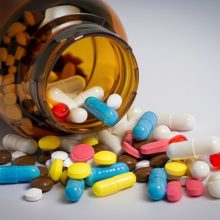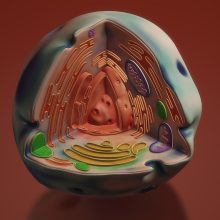How to Lower Blood Pressure Naturally . . . Without Medication and Adverse Side Effects
Do you suffer from high blood pressure (also called hypertension)?
If you do, you’re not alone. Hypertension or prehypertension affects two out of every three American adults . . . or roughly 150 million people.
My dad was one of them.
When my dad’s doctor told him he had high blood pressure, he immediately put him on hypertension drugs and told him to cut salt from his diet.
Problem is the drugs made him constipated, gave him headaches, and caused him to lose sleep. And since dad was put on a low-sodium diet (believed to contribute to his high blood pressure), his food often tasted bland. Needless to say, he wasn’t a happy camper.
None of this is surprising since hypertension drugs are notorious for causing side effects. In fact, according to the British Medical Journal, 97% of people taking blood pressure meds suffer side effects.
Blood pressure meds are also linked to cancer, dementia, and erectile dysfunction. They can even increase your risk of stroke.
Fortunately, dad didn’t suffer for very long. He eventually scrapped his medication and low-sodium diet, yet still lowered his blood pressure.
Here’s how he did it . . .
Let Food Be Thy Medicine
Who hasn’t heard Hippocrates’ famous quote about letting food be your medicine and your medicine your food?
Researchers at the University of Southern California proved Hippocrates was right when they found certain types of food can lower blood pressure naturally . . . without taking these risky drugs and without adverse side effects.
What they found was that eating foods high in potassium lowers blood pressure naturally . . . regardless of how much or how little salt you eat.
Often, high blood pressure is linked to a typical Western diet where sodium intake is high and potassium intake is low. This can elevate your chances of getting high blood pressure.
Alicia McDonough, professor of cell and neurobiology at USC, explains that when your body is low in potassium, it retains sodium so as to hang onto what little potassium is present. Increase the potassium level and your body will excrete sodium, causing your blood pressure to drop.
In other words, eat more potassium and your body automatically puts you on a low-sodium diet . . . no matter how much salt you eat (though don’t overdo it). I personally use sea salt because it contains a lot of trace minerals your body needs, so it’s far healthier for you than regular salt.
Foods Rich in Potassium
Here are 12 potassium-rich foods you can eat that will help lower your blood pressure naturally:
- 1 whole avocado: 1,068 mg
- 6 ounces of wild-caught salmon: 1,068 mg
- 1 medium sweet potato: 952 mg
- 1 baked potato: 925 mg
- 1 cup acorn squash: 896 mg
- 1 cup of spinach: 839 mg
- ½ cup of dried apricots: 756 mg
- 1 pomegranate: 667 mg
- 1 cup of coconut water: 600 mg
- 1 cup of Kefir yogurt with no added sugar: 579 mg
- ½ cup of white beans: 502 mg
- 1 banana: 425 mg
You can also take potassium supplements, though if you’ve experienced kidney failure or are on certain types of diuretic medications, excess potassium can overwhelm the kidneys. This leads to a condition called hyperkalemia . . . causing tingling extremities, muscle weakness, or cardiac arrest caused by heart arrhythmia.
If you’re taking diuretic meds or have had kidney failure, best to check with your doctor before taking potassium supplements . . . just to be safe.
On the other hand, if you’re fairly healthy, you shouldn’t experience any problems from high levels of potassium in your diet. And even if you don’t have high blood pressure, potassium has many other health benefits that will help keep you fit and well.




